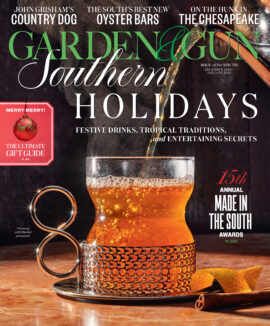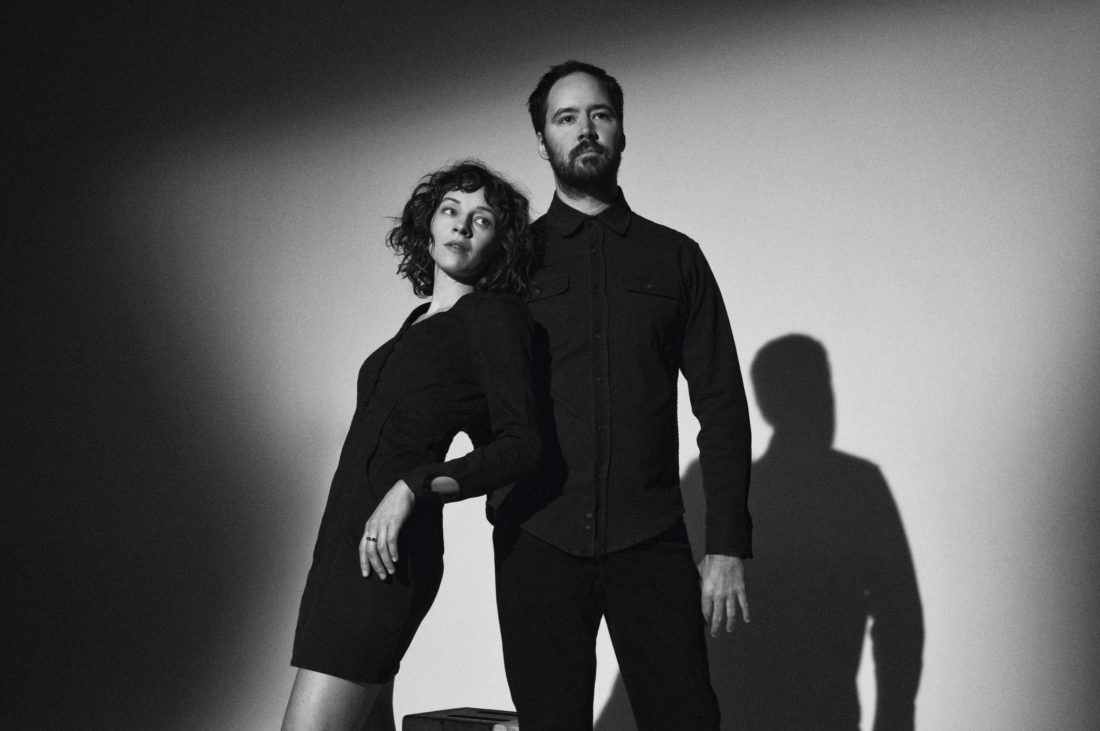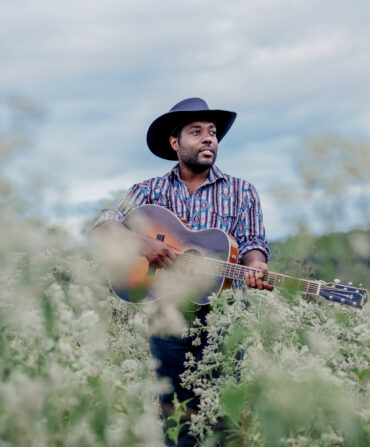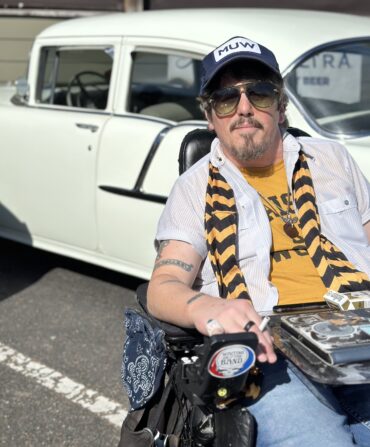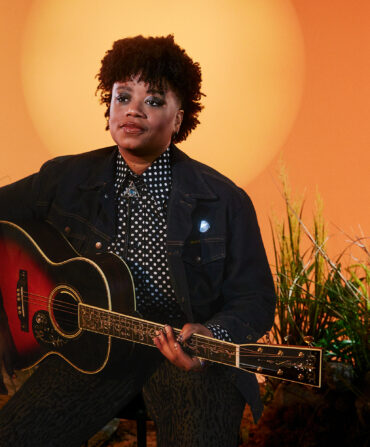Fans of Emily Frantz and Andrew Marlin, better known for the last decade as Mandolin Orange, have eagerly been awaiting new music since the husband-and-wife duo’s 2019 breakout album, Tides of a Teardrop. This week, they’ll get their wish, which comes with a bit of a surprise. The new album, Watchhouse, is also the North Carolina band’s new name.
“We’ve felt a divide between the music that we make and the band name for a long time—or maybe we just didn’t want to feel like we had to have a mandolin on every song,” Frantz says. “Any expectation, even when we’re totally the ones putting that on ourselves, can start to feel toxic when you’re trying to be creative and trying to grow. So even though it was a huge change to put on the public, we knew we had to do it for ourselves to be able to move forward in our music.”
The duo does indeed charge forward on Watchhouse, exploring sounds that span beyond their bluegrass roots and tapping Josh Kaufman as their first-ever outside co-producer. The result is a nine-song journey that capitalizes on the swift strings and tender harmonies that fans have come to expect from Frantz and Marlin while delving into new sonic territory with contributions from guitarist Josh Oliver, bassist Clint Mullican, and drummer Joe Westerlund.
Below, watch two exclusive videos of the full band performing the tracks “New Star” and “Upside Down” from the new album. And read on for more from our interview with Frantz and Marlin about the new name, their North Carolina home, and the perils of social media. Watchhouse is out this Friday and available to order here.
What’s the story behind the name “Watchhouse”? Is it based on an actual place?
Marlin: There was a place that I used to go to when I was a teenager with some close family friends of mine—a place to just go…be.
Frantz: It was in a marsh, kind of off the grid.
Marlin: It was a hunting cabin. During the winter months, we’d all go out there and go duck hunting, just hang out in the reeds for a while. I hope that by changing the band name to this, we opened a space up for people to feel like they can come to our music in the same light—where they can step away from things, only go there with their closest friends, and feel safe and enjoy it.
You’re both from North Carolina, and you’re based in Chapel Hill. How do you think your home impacts you as musicians?
Marlin: The general vibe here in the Triangle is very inclusive. It’s not a place where people are scrounging to get gigs. We just make music, and I think that’s probably informed us more than anything—feeling like music is a way to meet people and hang out, not a competition.
Frantz: We tend to operate in the acoustic/bluegrass/old-time world, but one of the cool things about living here is that there’s very much a scene of musicians that spans way beyond our acoustic existence. There’s a lot of camaraderie between all of the musicians that live here. I think that keeps our minds open and makes us feel like we could make any music we wanted to.
The single “Better Way” has already become a fan favorite, and the lyrics seem especially timely. “Alone, digging for bones, buried in your phone” could probably be applied to a lot of folks these days. What inspired that song?
Marlin: It was a specific moment that ended up getting non-specific. Basically, [it’s about] how unabashedly mean people can be on social media. I don’t believe people are that way in their everyday lives. If I were to have a conversation with someone who’s just completely ripped us apart on social media, I don’t think it would ever go there. They might express their opinions and we might differ, but I think we could find some common ground. But there’s never that moment to have an actual conversation with eye contact and body language, and that’s what I was calling out in that song. If you wouldn’t do it standing beside somebody or sitting across from them at a dinner table, then why would you feel so compelled to rip them apart online? It doesn’t make sense.
Music fans and musicians alike are eager to get back to live shows. Are there particular songs from the album that you’re especially excited to play live in front of people?
Frantz: All of them. That’s the most exciting thing about putting out a new record. We’ve been playing “Beautiful Flowers” at some outdoor festivals this summer, and I just love that moment when there’s just this nice rest, when so much sound gets sucked away from the stage. It’s so bare-bones, and it’s just a really nice moment on stage—I’ll be happy to do it in the context of all our new songs.
Marlin: My favorite is “Better Way.” I love the noise jam at the end of it because it makes people so uncomfortable—ourselves included! How long we stretch that out, and where we take it, really depends on the show, and I think that is what’s so unnerving about it. Everybody in the band can play great solos or sing amazing parts, but after that long extended jam of nothingness is when people seem to erupt the most, and I think it’s mainly because it’s over. [Laughs] I feel like we’re always trying to create those little moments to keep people engaged, keep ourselves engaged. But that noise at the end of “Better Way” is this little anti-moment that I love.

